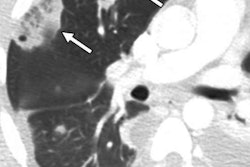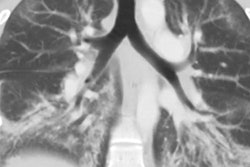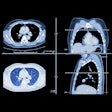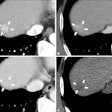Thursday, December 5 | 10:40 a.m.-10:50 a.m. | SSQ19-02 | Room E353B
A deep-learning technique can create virtual high-dose CT images from microdose images, helping reduce radiation dose delivered to patients, according to this Thursday presentation.Studies have shown that CT scans performed in the U.S. would cause 29,000 new radiation-induced cancer cases each year, resulting in an estimated 15,000 cancer deaths, noted senior study author and presenter Kenji Suzuki, PhD, of the Tokyo Institute of Technology. To lower radiation dose, CT vendors have developed and improved iterative reconstruction (IR) technology.
"Although the IR in CT scanners is the mainstream technology for radiation dose reduction, a national survey study with more than 1,000 hospitals in Australia revealed that the IR technologies reduced radiation dose only by 17% to 44%," Suzuki told AuntMinnie.com. "It is not sufficient, especially for [a] screening population such as lung cancer screening in CT."
To address this issue, the researchers developed a technique that converts microdose CT images to virtual high-dose images. With their method -- called noise-specific 3D neural network convolution (NNC) deep learning -- noise and artifacts from the low radiation dose are removed from the images.
They trained the NNC model with simulated microdose CT (0.2 mSv) images as inputs along with corresponding high-dose CT (3.0 mSv) images from their diagnostic CT database.
"Our quantitative evaluation demonstrated our NNC was able to reduce radiation dose by more than 90%, while anatomic structures and pathological characteristics of both solid and ground-glass nodules were well-preserved," Suzuki said. "Thus, substantial reduction of radiation dose in CT by our new noise-specific virtual high-dose technology would potentially make microdose CT screening possible, and it would be beneficial to screening population."
The research was conducted at the Tokyo Institute of Technology and the Illinois Institute of Technology in Chicago, in collaboration with Hiroshima University in Japan.
Stop by this talk to learn more.





















